The World Jurist Association (WJA) organised the forum ‘Victims, Defenders and International Justice’ in which numerous voices from around the world participated, both victims of the Venezuelan regime and international defenders. The latter were led by the Senior Public Counsel for Victims of the International Criminal Court, the Italian Paolina Massidda, and Tomás Farini, the Argentinean lawyer who led the lawsuit that led to the Argentinean justice system issuing an international arrest warrant for Nicolás Maduro on 23 September.
The day focused on the current situation in Venezuela and all of them agreed that the International Criminal Court should act now by issuing an arrest warrant for Nicolás Maduro and Diosdado Cabello.
Carmen Ladrón Guevara, a lawyer for victims of terrorism in Spain, led this appeal ‘for the victims’. She defined the situation in Venezuela as ‘state terrorism’ and stated that ‘when the perpetrator of terrorism is the state, international justice plays a very important role because it must be the state that seeks the truth, identifies those responsible and responds for these violations’.
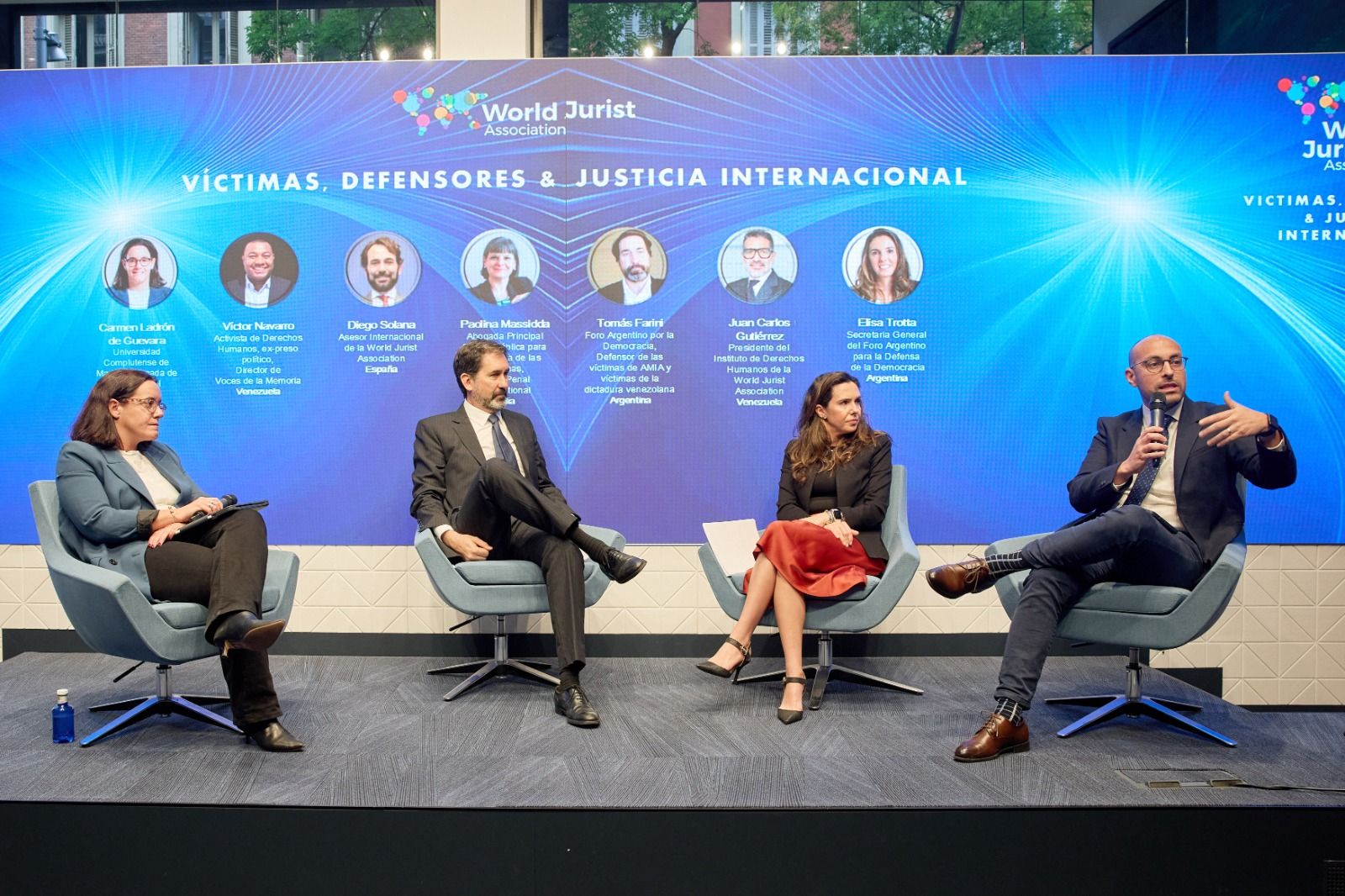
For her part, Elisa Trotta, secretary general of the Argentinean Forum for the Defence of Democracy in the Region, defended that ‘what is happening in Venezuela, where time is measured in victims, cannot be silenced’ and recognised that ‘in the face of this machine of torture and repression, the only thing we can do is commit ourselves to justice and truth, because dictatorships prosper where there is silence’. He also made reference to political pressure, which he considers ‘fundamental’: ‘we have to understand that Venezuelans have given everything and the time has come for the international community, because impunity cannot be allowed’.
In defence of fundamental rights, Juan Carlos Gutiérrez, president of the Human Rights Institute of the World Jurist Association, insisted on ‘the right of victims to receive truth, justice, reparation and guarantees of non-repetition’.
Regarding the role of the International Criminal Court in this case, Tomás Farini, of the Argentine Forum for Democracy in the Region and defender of the victims of AMIA and victims of the Venezuelan dictatorship, acknowledged that there is no logical explanation for the ICC not having already done what the Argentine justice system did in September by ordering the arrest of Maduro and Diosdado. And to prosecutor Karim Khan he dedicated a reflection: ‘it is easier to live assuming the risks of getting involved in these cases than to live knowing that something could have been done but was not’.
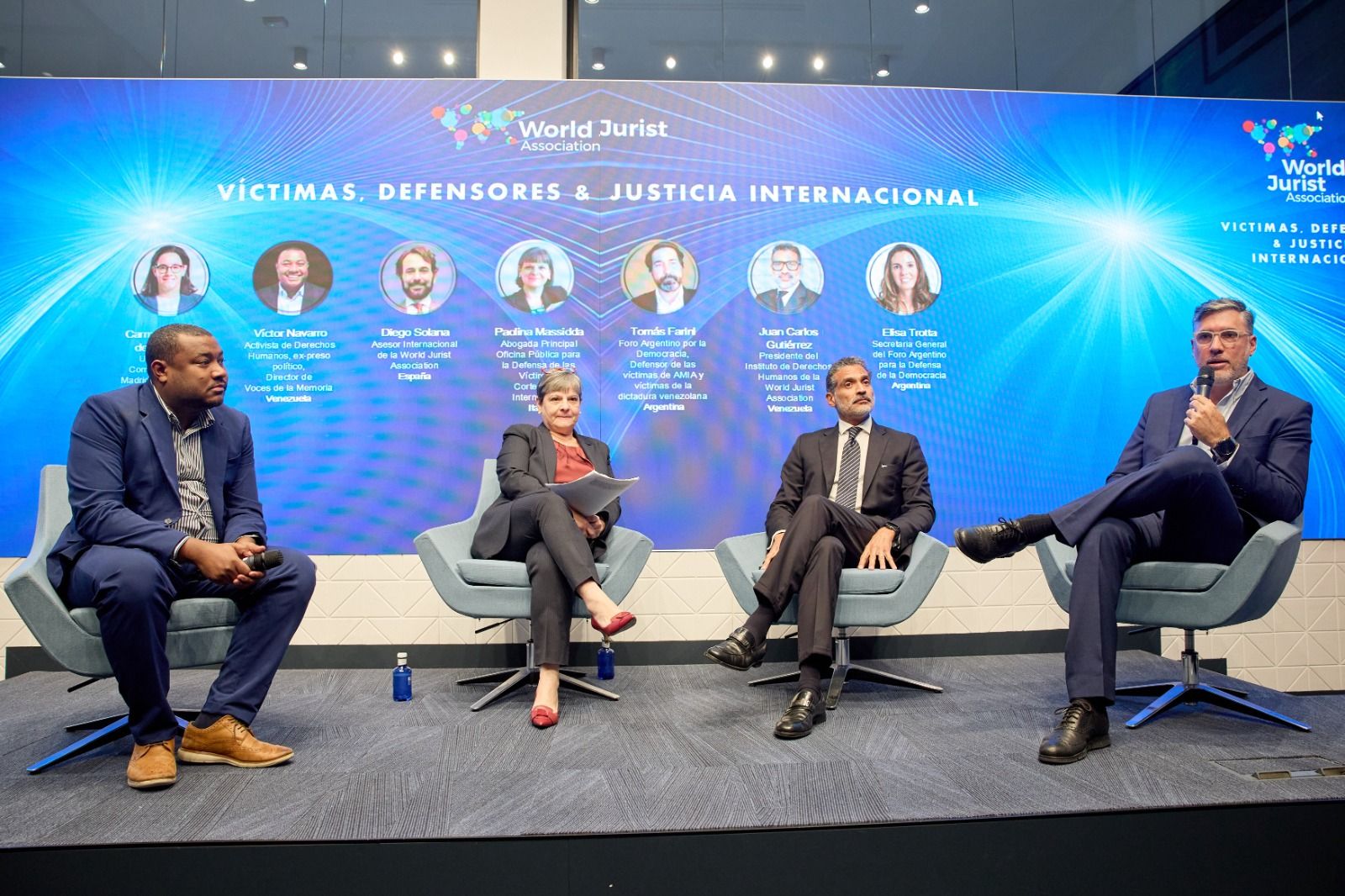
In this regard, Paolina Massidda, senior lawyer at the ICC’s Public Office for Victims’ Defence, has sent a message to victims that they should not feel intimidated by the ICC and also pointed out that there must be political pressure on the Prosecutor of the court, as arrest warrants depend on his will: “we all know that Maduro’s government is not democratic, nor have the elections been democratic, the lawyers continue to provide more accurate information on what is happening, and we have to keep talking about Venezuela”.
Regarding the requests to the prosecutor, Juan Carlos Gutiérrez acknowledged that ‘it is not what I ask for, but what my responsibility is as a lawyer for victims and that is why we should convince the prosecutor’s office to act’.
Víctor Navarro, human rights activist, political prisoner, victim of torture, and director of Voces de la Memoria, also took part in the day’s proceedings, recounting his detention in Venezuela, without an arrest warrant and without the right to defence by his lawyer. ‘There is more than evidence and we must give it the dimension it has, seeking justice and the release of all political prisoners’, he said, and acknowledged that he hoped “that the ICC will also rely on the evidence of crimes against humanity that Maduro gives day after day on television” as it did with Putin. Finally, he called for political prisoners not to continue to be used as bargaining chips, stressing that ‘they must all be released immediately’.
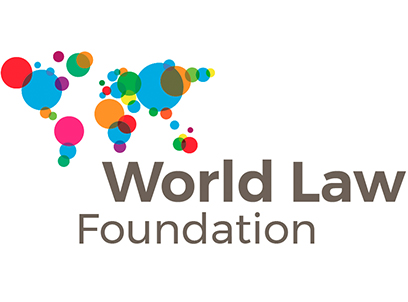

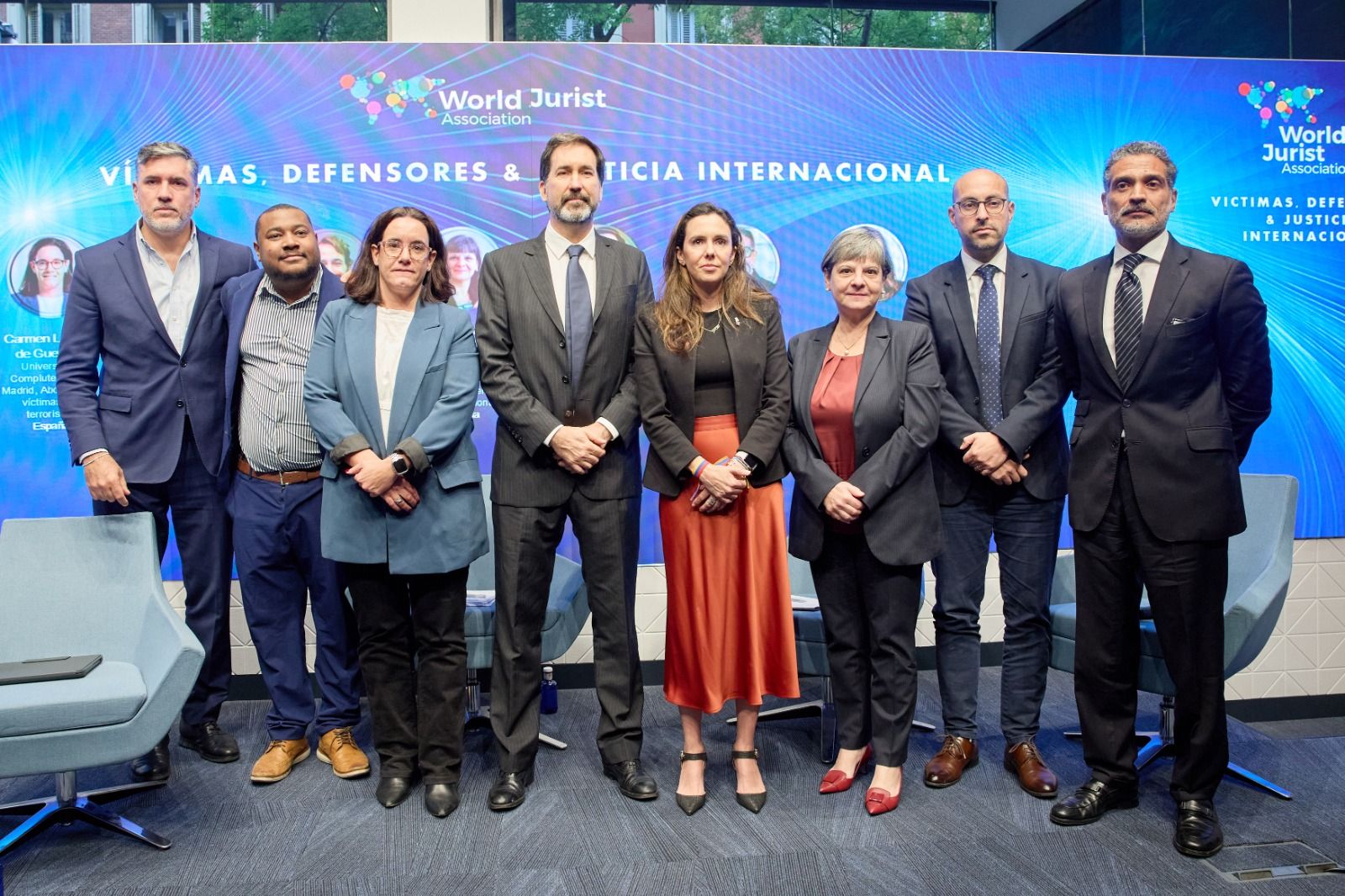

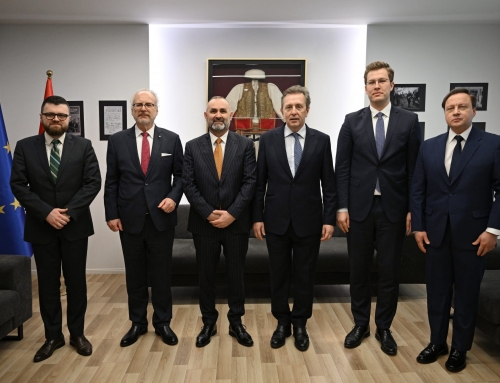
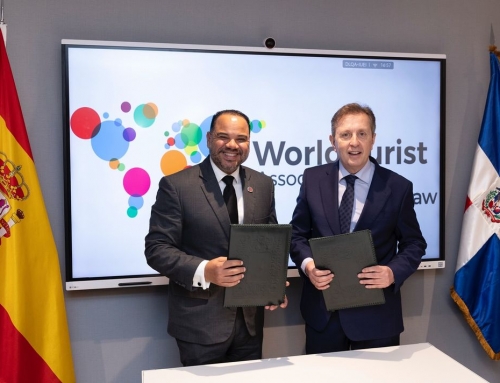
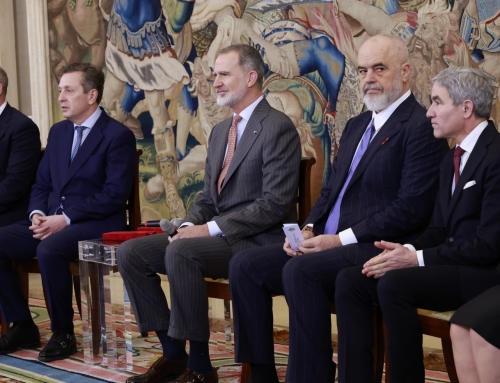
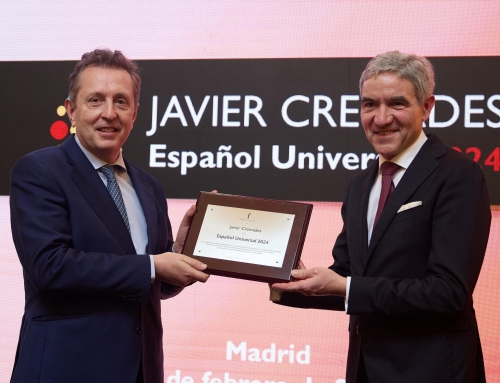
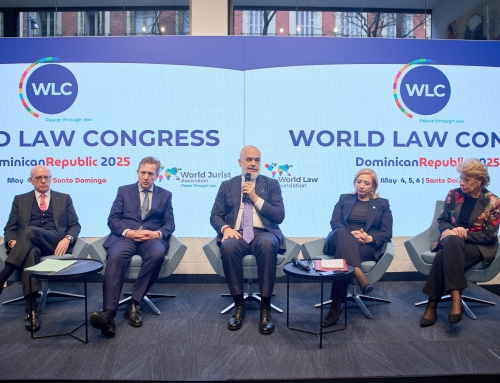

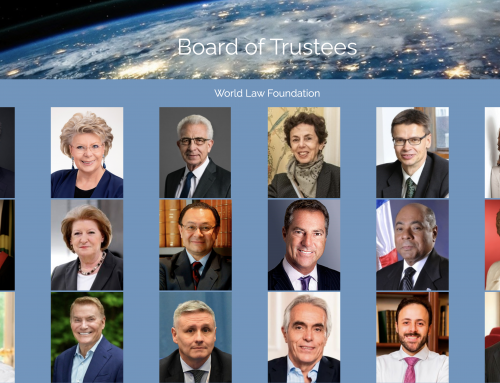
Leave A Comment